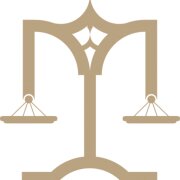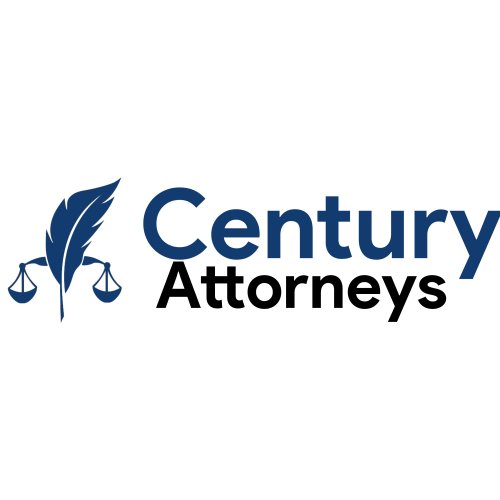Best Restructuring & Insolvency Lawyers in Kano
Share your needs with us, get contacted by law firms.
Free. Takes 2 min.
List of the best lawyers in Kano, Nigeria
About Restructuring & Insolvency Law in Kano, Nigeria
Restructuring and insolvency law in Kano, Nigeria, governs the processes by which financially distressed companies and individuals can resolve their debts, reorganize their affairs, and, when necessary, liquidate their assets. This area of law is crucial for both businesses and creditors, as it provides structured procedures for addressing financial troubles and potential insolvency. Kano, as a major commercial hub in Nigeria, witnesses various cases involving insolvency, restructuring agreements, and debt recovery, which are handled under the purview of Nigerian federal insolvency laws, adapted for regional application. The goal is to ensure fair treatment for all parties, preserve value where possible, and encourage economic stability.
Why You May Need a Lawyer
Seeking legal help in restructuring and insolvency matters is often essential due to the complexity of applicable laws and the significant implications for businesses and individuals. Common situations where legal assistance is required include:
- Facing creditor claims or pressure due to inability to repay debts
- Considering business reorganization to avoid insolvency proceedings
- Negotiating debt restructuring or rescheduling agreements
- Initiating or responding to insolvency proceedings (such as bankruptcy or winding up)
- Dealing with asset seizure or receivership appointments
- Pursuing or defending actions for fraudulent or wrongful trading
- Recovering debts from an insolvent party
- Dealing with the tax authorities in relation to insolvency or liquidation events
A lawyer can provide much-needed guidance, represent your interests in court, help you navigate complex paperwork, negotiate with creditors or debtors, and ensure that your rights and assets are protected throughout the process.
Local Laws Overview
Nigerian insolvency and restructuring laws apply in Kano, supplemented by local practice rules and procedures. The key legislative framework affecting restructuring and insolvency in Kano includes the Companies and Allied Matters Act (CAMA) 2020, the Bankruptcy Act, and related regulations. Some key aspects are:
- Corporate Insolvency: Under CAMA, companies facing insolvency can undergo formal procedures such as winding up by the court, creditors’ voluntary winding up, or arrangements and compromises with creditors.
- Bankruptcy for Individuals: The Bankruptcy Act covers personal insolvency for individuals and provides for adjudication, the appointment of trustees, and debt relief mechanisms.
- Receivership: Creditors may appoint receivers to take control of assets in order to recover unpaid debts, commonly used in secured lending scenarios.
- Cross-Border Insolvency: Nigeria does not formally adopt the UNCITRAL Model Law, but local courts have shown willingness to consider foreign insolvency proceedings under certain conditions.
- Debt Recovery: There are both judicial and alternative dispute resolution options for debt recovery, with local High Courts playing a role in adjudicating claims.
- Sharia Law Considerations: Kano operates under a hybrid legal system, so for some personal and business matters among Muslims, Sharia law may interplay with federal statutes, affecting how insolvency-related disputes are resolved.
Engaging a lawyer with experience in both federal and Kano-specific legal procedures is recommended for navigating local intricacies.
Frequently Asked Questions
What is the difference between restructuring and insolvency?
Restructuring refers to reorganizing a company’s debts and operations to avoid insolvency, often through negotiations and agreements with creditors. Insolvency is the state where an individual or entity is unable to pay debts as they fall due, possibly resulting in formal legal proceedings to resolve the situation.
What is the process for winding up a company in Kano?
The process typically involves filing a petition at the Federal High Court, notification to creditors and stakeholders, the possible appointment of a liquidator, and realizing company assets to settle claims. Winding up can be voluntary (initiated by the company or creditors) or compulsory (ordered by the court).
Can an individual be declared bankrupt in Kano?
Yes, individuals who are unable to pay their debts can be declared bankrupt under the Bankruptcy Act. The court may appoint a trustee to manage the debtor’s estate for the benefit of creditors.
How does receivership work in Kano?
When a debtor defaults, a secured creditor may appoint a receiver to seize and manage the debtor’s assets in order to recover the owed amount. The receiver operates independently and acts in the interest of those who appointed them.
Are out-of-court debt settlements recognized?
Yes, parties may enter into negotiated debt settlements or restructuring agreements outside court. Such settlements are often encouraged, provided all parties agree and legal formalities are met.
Can insolvency affect personal assets of company directors?
Generally, company directors are protected by the principle of limited liability. However, if directors engage in fraudulent or wrongful trading, the court may hold them personally liable.
What laws govern bankruptcy and insolvency cases in Kano?
Key laws include the Companies and Allied Matters Act (CAMA), the Bankruptcy Act, and local procedural rules. Sharia rules may also apply to cases involving Muslim individuals, depending on the circumstances.
Do I need a lawyer to file for insolvency?
While not compulsory, it is highly advisable to consult a lawyer due to the legal complexities, especially regarding court filings, negotiations, and protection of your rights and interests.
How are creditors paid during insolvency proceedings?
Creditors are typically paid according to a legally defined priority. Secured creditors are paid first, followed by preferential and then unsecured creditors, with any surplus distributed to shareholders or owners.
Can a restructured business return to normal operations?
Yes, the aim of restructuring is to restore financial health and allow the business to continue operations after reaching new agreements with creditors and possibly reorganizing its structure.
Additional Resources
Several organizations and government bodies can assist individuals and businesses facing restructuring and insolvency challenges in Kano:
- Corporate Affairs Commission (CAC): Handles company registration, records, and corporate governance issues.
- Federal High Court (Kano Division): Jurisdiction over insolvency and bankruptcy proceedings in Kano State.
- Kano State Ministry of Commerce, Industry, and Cooperatives: Provides business support and regulatory guidance.
- Central Bank of Nigeria (CBN): Offers policy updates for financial institutions, which can affect insolvency processes.
- Nigerian Bar Association (Kano Chapter): Can help connect you with qualified restructuring and insolvency lawyers in the area.
Next Steps
If you are facing potential insolvency or considering restructuring in Kano, Nigeria, it is crucial to act promptly. Here’s how you can proceed:
- Gather all relevant documentation about your financial position, debts, and assets.
- Schedule a consultation with a lawyer specializing in restructuring and insolvency in Kano to discuss your situation and options.
- Follow legal advice on negotiating with creditors, initiating court processes, or preparing restructuring plans.
- If required, be prepared to participate in court hearings, mediation sessions, or negotiations as advised by your legal representative.
- Stay informed about your rights and responsibilities throughout the process by seeking regular updates from your lawyer.
Taking early and informed action can help protect your interests and improve your chances of achieving the best possible outcome. Legal professionals are equipped to help you navigate this complex area with confidence.
Lawzana helps you find the best lawyers and law firms in Kano through a curated and pre-screened list of qualified legal professionals. Our platform offers rankings and detailed profiles of attorneys and law firms, allowing you to compare based on practice areas, including Restructuring & Insolvency, experience, and client feedback.
Each profile includes a description of the firm's areas of practice, client reviews, team members and partners, year of establishment, spoken languages, office locations, contact information, social media presence, and any published articles or resources. Most firms on our platform speak English and are experienced in both local and international legal matters.
Get a quote from top-rated law firms in Kano, Nigeria — quickly, securely, and without unnecessary hassle.
Disclaimer:
The information provided on this page is for general informational purposes only and does not constitute legal advice. While we strive to ensure the accuracy and relevance of the content, legal information may change over time, and interpretations of the law can vary. You should always consult with a qualified legal professional for advice specific to your situation.
We disclaim all liability for actions taken or not taken based on the content of this page. If you believe any information is incorrect or outdated, please contact us, and we will review and update it where appropriate.

















